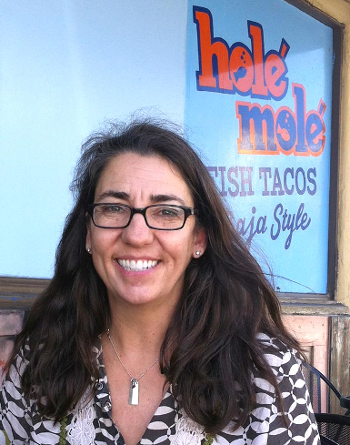|
|
|
The sense of taste (or gustation) allows us to detect sweet, sour, salt, bitter and savory a.k.a. umami, and is key to our ability to ingest items that are nutritious and delicious and reject those that may harm us. Taste is mediated by taste buds on the tongue, and these collections of taste receptor cells are innervated by nerves that transmit taste information from the tongue to the brain. While the nerves innervating taste buds are maintained throughout life, the roughly 100 taste receptor cells in each of our taste buds are continually replaced, such that every few months all the cells within each bud are new. Remarkably, however, the tastes you experienced eating a dill pickle (sour, salt) a few months ago will be the same as those you recognize eating a dill pickle tomorrow. How is the sense of taste so stable and reliable even though all the receptor cells are constantly changing? My lab is interested in this question from a neurobiological perspective, as well as from a human health perspective. It is well known that a host of cancer therapies cause temporary or permanent taste dysfunction in patients. Loss or distortion of taste is a significant complaint of patients, leading to loss of appetite, dangerous weight loss, and depression. There is currently no successful treatment option to prevent the development of taste dysfunction during cancer treatments. We use mice to experimentally investigate how the taste cell renewal process is affected by different kinds of chemotherapeutics and radiation therapy, and how these disruptions translate into changes in taste behavior. (Yes, we can test the ability of mice to taste in something called a lickometer!) The rationale is if we can figure out the specific ways these treatments disrupt taste bud cell renewal and taste function, we will be able to devise ways to mitigate taste dysfunction, initially for mice, and in the longer term, for cancer patients. |

 Linda Barlow is Professor in the Department of Cell and Developmental Biology at the University of Colorado School of Medicine. She earned her BA in Zoology at UC Berkeley, and her PhD, also in Zoology, at the University of Washington in Seattle. Her postdoctoral Training was at the University of California San Diego and Scripps Institute of Oceanography. In 2000 she won the Ajinomoto Award in Gustation. She joined the faculty in Colorado in 2001. She has numerous publications and has spoken at conferences and research institutes around the world. In the 1990s she did a considerable amount of work with axolotls. Now, much of her work focuses on the gene Sonic Hedgehog.
Linda Barlow is Professor in the Department of Cell and Developmental Biology at the University of Colorado School of Medicine. She earned her BA in Zoology at UC Berkeley, and her PhD, also in Zoology, at the University of Washington in Seattle. Her postdoctoral Training was at the University of California San Diego and Scripps Institute of Oceanography. In 2000 she won the Ajinomoto Award in Gustation. She joined the faculty in Colorado in 2001. She has numerous publications and has spoken at conferences and research institutes around the world. In the 1990s she did a considerable amount of work with axolotls. Now, much of her work focuses on the gene Sonic Hedgehog.